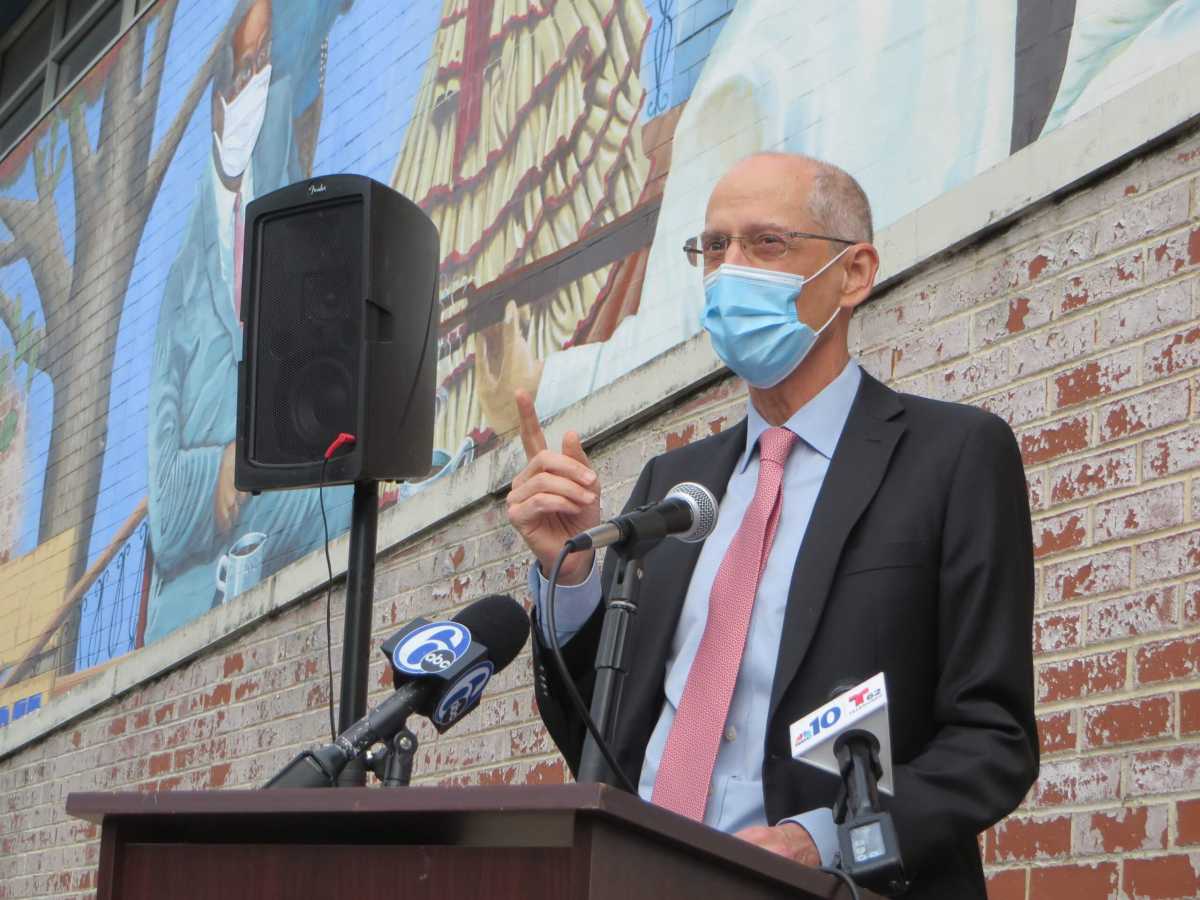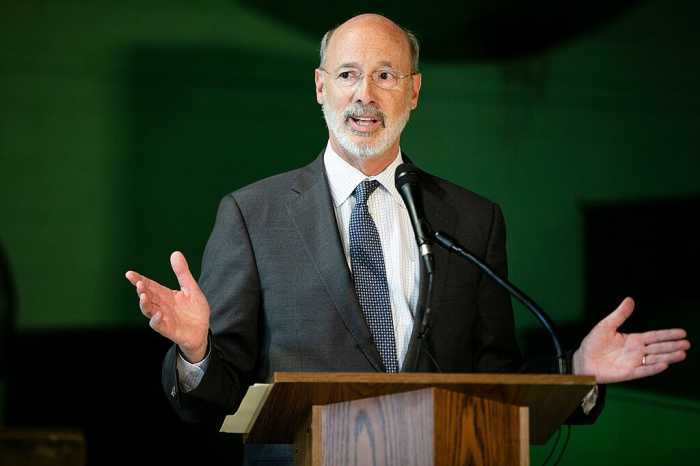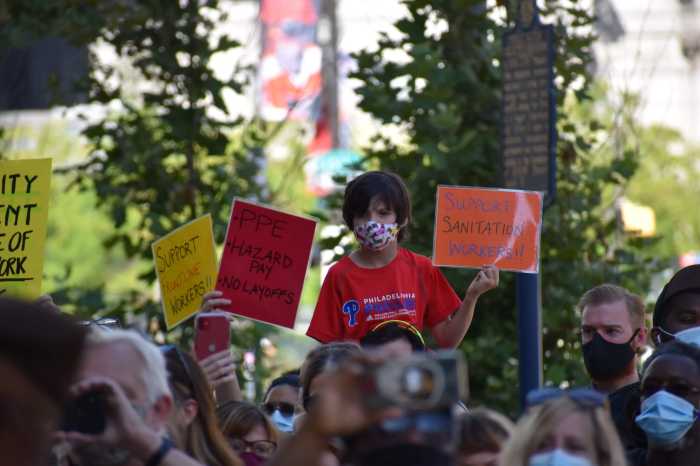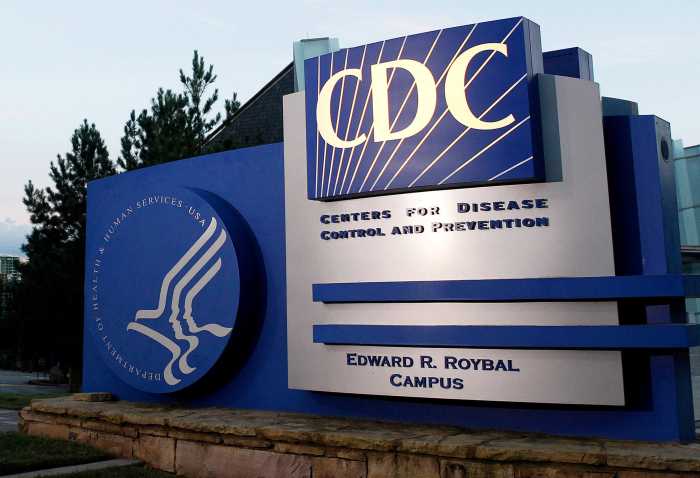Philadelphia is seeing a “substantial increase” in cases of the novel coronavirus, Health Commissioner Thomas Farley said Tuesday.
The reasons behind the spike aren’t clear, he said, though officials noted continued spread of COVID-19 at local colleges and increased rates of transmission in the Far Northeast section of the city.
It doesn’t appear to be related to indoor dining, which resumed last month, or the reopening of some K-12 schools, which have experienced isolated cases but no outbreaks, Farley said.
Last week, the city averaged 110 cases a day and recorded a 3.9% positive test rate, up from 86 cases and 2.9% the prior week.
Officials reported 250 new COVID-19 cases Tuesday, a number which may be inflated due to a backlog of results that were just disclosed to the health department, Farley said.
There were also 28 positive rapid test results, which the city counts as “probable” cases due to the possibility of inaccurate diagnoses. Philadelphia also registered one additional virus-related fatality, bringing the death toll to 1,817.
At Jefferson University, a total of 77 students have been infected with COVID-19, and St. Joseph’s University has 44 active cases, according to online dashboards operated by the schools.
Temple University, which last month suspended classes for the remainder of the fall semester following a significant outbreak, is reporting 50 active cases.
Farley said the virus seems to be spreading at social gatherings among students, not in classrooms.
Nursing homes, whose residents account for about half of all COVID-19-related deaths in the city, have also seen an uptick in cases, Farley said.
In mid-September, all of the facilities in Philadelphia were only reporting a combined one or two cases a day. Now, that’s up to three to five.
“That’s not a big increase,” Farley said. “Those are not large numbers but those numbers are still very concerning because people in these situations are very medically vulnerable.”
Philadelphia will not immediately adopt Gov. Tom Wolf’s plan to expand capacity limits on indoor and outdoor gatherings.
The governor announced the change Tuesday. Effective Friday, the restrictions on events will be based on a “maximum occupancy calculator.” Previously, gatherings across the state were limited to 25 indoors and 250 outdoors, no matter the size of the venue.
Kenney said the city learned of the revised order on Monday afternoon, and city leaders plan to review it and make a decision by next Tuesday on a new policy for Philadelphia.
“We do have concerns about this in Philadelphia because we do have unique risks in the city,” Farley said.
The city has tended to impose stricter protocols than the rest of the state.
Under the Wolf administration’s system, indoor venues with a fire code occupancy of 2,000 and under will be able to open at 20% capacity. Those that can admit between 2,001 and 10,000 can operate a 15%, and venues that can hold more than 10,000 can serve 10%, with a maximum of 3,750.
For outdoor events, the tiers are the same, but capacity is an extra 5% at each level, with the maximum number of people permitted capped at 7,500 for venues that can accommodate over 10,000.
In Philadelphia, gatherings outside have been restricted to 150 people, and indoor events have been limited to 25.
In other coronavirus-related news, city leaders said they would not take action to ‘cancel’ Halloween, but they did publish guidance on how to celebrate the holiday during the pandemic.
Among the recommendations are that all activities are outdoors; everyone wears a mask; people stay at least 6 feet away from people outside their household; no gatherings; and that people with COVID-19 symptoms or those that have been exposed to the virus stay away from the festivities.
Officials also announced Tuesday that the deadline for phase two of the city’s coronavirus rental assistance program has been extended to Nov. 4. The application period was initially supposed to expire Sept. 30.
Residents who applied for phase one, including those who received benefits, can still put in for the second phase. For more information, go to www.phlrentassist.org.




























